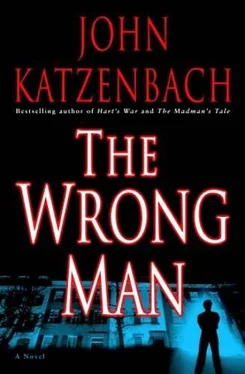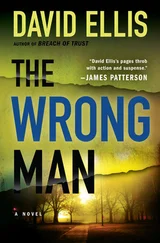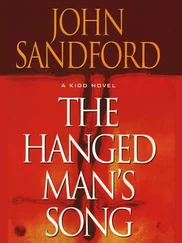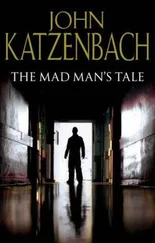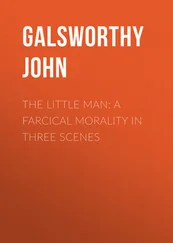“Doesn’t it seem to you that we live these incredibly diffuse, disjointed lives? Once upon a happier time, you grew up and stayed where you were. Probably bought the house down the street from your folks. Helped run the family business. So we all remained linked, in the same orbit. Naïve times. The Honeymooners and Father Knows Best on television. What a quaint idea: Father knows best. Now, we get educated and we depart.”
She paused, then asked, “So, what would you do then, when it became clear to you that someone had decided to ruin your life?”
She added, “And don’t you see? From our perspective, looking at the story from our safe spot in this world, it’s easy to see that there is this person out there trying to ruin their lives. But they couldn’t see that.”
“Why not?” I blurted out.
“Because it’s not reasonable. Because it made no sense. I mean, why? Why would he want to do this to them?”
“Okay, why?”
“Not yet. You need to find that out for yourself. But some things are clear: Michael O’Connell, with half their education, half their resources, half their prestige, had all the power. He had twice their smarts because they were like everyone else and he wasn’t. There they were, caught up and entwined in the midst of all his evil, and yet, they couldn’t see it. Not for what it was. What would you do? Isn’t that the question? Awful things have happened, but what is the real threat?”
I didn’t directly answer. Instead, I repeated myself, trying to get an answer, “But something changed?”
“Yes. A moment of lucidity.”
“How so?”
She smiled. “A lucky phrase. In what was fast becoming a most unlucky situation.”
A Change of Approach
At first, Ashley was overwhelmed by rage.
Seconds after Michael O’Connell’s voice disappeared from the cell phone, she threw it across the room, where it exploded against a wall like a gunshot. She bent over at the waist, her fists clenched, her face contorted, flushed, teeth grinding. She picked up a textbook and threw it in the same direction, where it slammed on the plaster and thudded to the floor. She paced into her bedroom, seized a small throw pillow from the bed, then pummeled it, like a boxer in the last round, throwing rights and lefts recklessly. Seizing the pillow and sinking her hands into the fabric, she pulled it apart. Bits and pieces of synthetic stuffing flew into the air around her, landing in her hair and on her clothing. Her eyes were filling with tears, and she finally let out a wail of despair, sliding into a complete black depression.
Ashley threw herself down on the bed, curled into the fetal position, and cried piteously, giving in to everything that was flowing in torrents within her. Her body racked with frustration, she heaved and gasped, as if her frustration had stretched into every fiber of her body, like some errant infection.
When she had no more tears, she rolled over, staring up at the ceiling, clutching pillow shreds to her chest. She breathed in deeply. She understood that tears didn’t solve any problem, but she felt a little better nevertheless.
When she could feel her heartbeat returning to normal, Ashley sat up.
“All right,” she said out loud. “Let’s get your shit together, girl.”
She glanced over at the shattered cell phone and decided that her burst of anger was a blessing. She would have to get a new phone, and with it, a new number. One, she promised herself, that Michael O’Connell wouldn’t have. She looked over at the desk, with the landline phone. “Cancel that.”
Next to the telephone was her laptop computer. “All right,” she said, again speaking to herself in the same way she would to a young child, “Change your Web service. Change your e-mail account. Cancel all bill-paying services. Start over.”
Then she looked around the apartment. “If you have to move, you have to move.”
She sighed deeply. She could go into the graduate-school registrar’s office in the morning and get her transcripts corrected. She knew this would be a major hassle, but she had paper copies of her grades somewhere, and whatever mischief Michael O’Connell had managed, she could sort her way through it. The current courses-and the nonexistent absences-might be impossible. But it was only one class, and although it was a setback, it wasn’t fatal.
Getting fired was a bigger problem. She had no confidence that the assistant director wouldn’t prove to be an obstacle in the future. He was a rigid dilettante and a closet sexist, and she would hate to have to deal with him again. She decided that the best course of action would be to try to get one of her undergraduate professors to write the assistant director a letter, simply telling him he’d been mistaken in his assumptions about her, and that her employment record should reflect this. She was pretty sure that she could get someone to do this when she explained the circumstances. It might not correct her firing-but it might at least neutralize the damage done.
After all, she told herself briskly, it wasn’t as if the job at the museum was the only job she could get. There had to be others, filled with color and art, that would speak to who she was and who she hoped to be.
The more Ashley planned, the better she felt. The more she decided on, the more she felt in control, the more she felt like herself, the stronger and more determined she believed herself to be. After a moment or two, she got up, shook herself from head to toe, and walked into the bathroom.
She stared at herself in the mirror, shaking her head at her swollen and red-rimmed eyes. “All right,” she said as she filled the sink with steaming-hot water and started to wash her face, “no more damn tears over this son of a bitch.”
No more getting scared. No more anxiety. No more gnashing teeth and nervous frustration. She was going to get on with her life, Michael O’Connell be damned.
She was suddenly hungry, and after washing away as much of her sadness as she could, she went to the kitchen, found a single pint of Ben amp; Jerry’s Phish Food ice cream in the freezer, and scooped out a large helping, letting the sweet tastes improve her mood, before she went to her remaining telephone to call her father. As she crossed her apartment, eating the ice cream out of the container, she hesitated by the window, glancing out into the night with a twinge of uncertainty. No more staring into shadows. Ashley turned away, seized her landline phone, and began dialing, unaware what pair of eyes were searching the wan light of her home for a glimpse of her form, both satisfied and yet dissatisfied with just the merest suggestions of her presence, completely at ease with the darkness, excited by how close he felt to her at that very moment. It was something that she would never understand, he thought to himself. How every step she took to try to separate herself only made him more excited and filled him with more passion. He turned the collar up on his coat and dropped back farther into a dark shadow. He could be warm right there all night if need be.
Hope was surprised to find Sally waiting for her when she arrived home that evening. They had fallen into the stiffest of patterns, marked by long silences.
She looked across at her partner of so many years and suddenly felt a surge of exhaustion and dismay cascade through her. This is it, she thought to herself. This is where we put words to an ending. A shapeless sadness filled her as she nervously looked over to Sally.
“You’re back a little early tonight,” she said as blandly as possible. “Hungry? I can put something together quickly, but it won’t be real interesting.”
Sally barely moved. Her hand was wrapped around another Scotch. “I’m not hungry,” she said a little sloppily. “But we need to talk. We have a problem.”
Читать дальше
